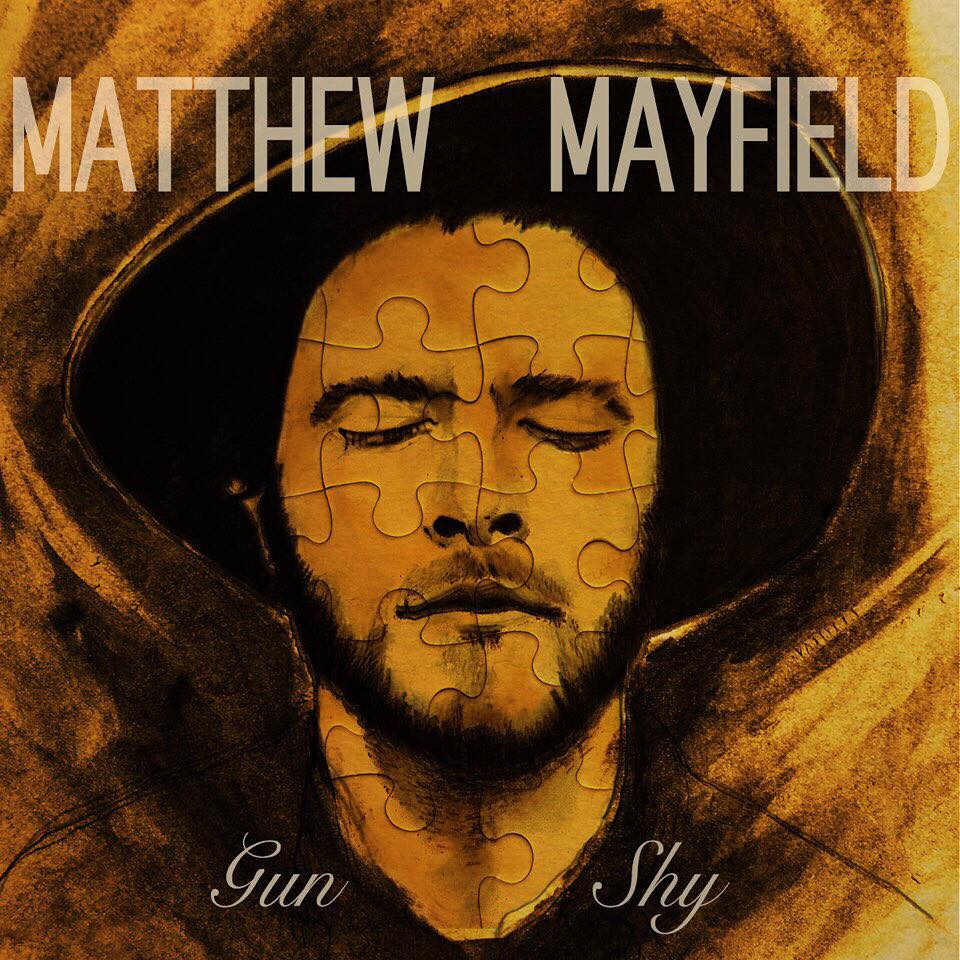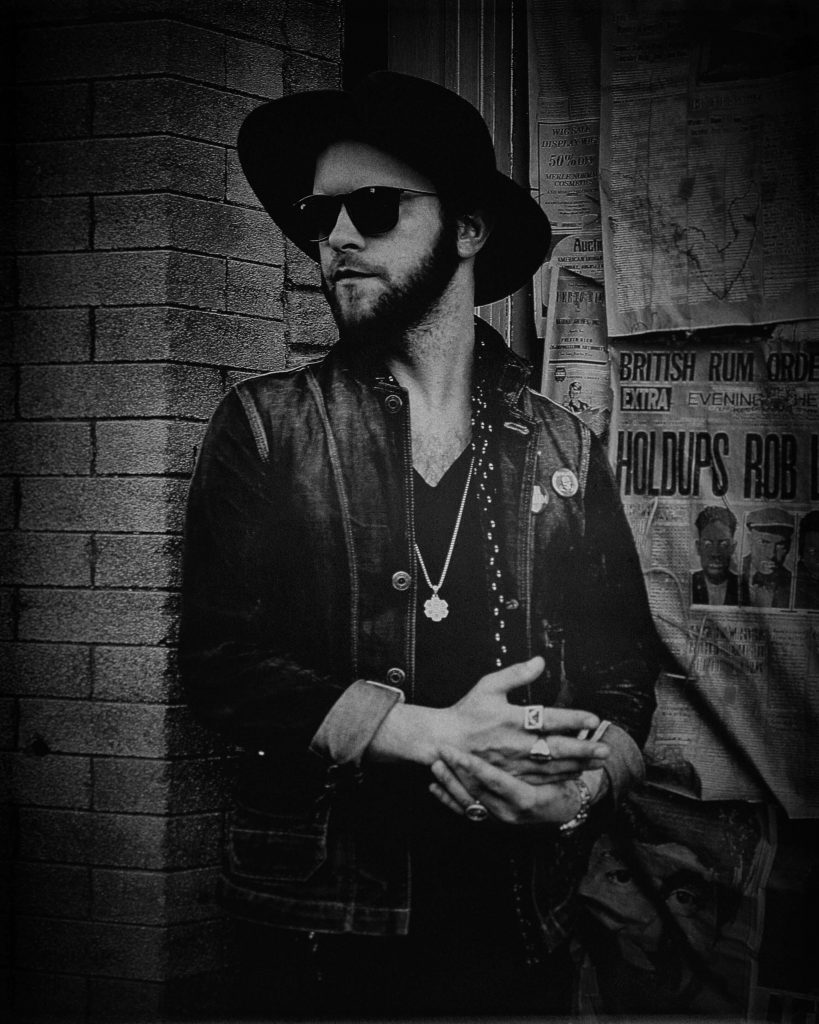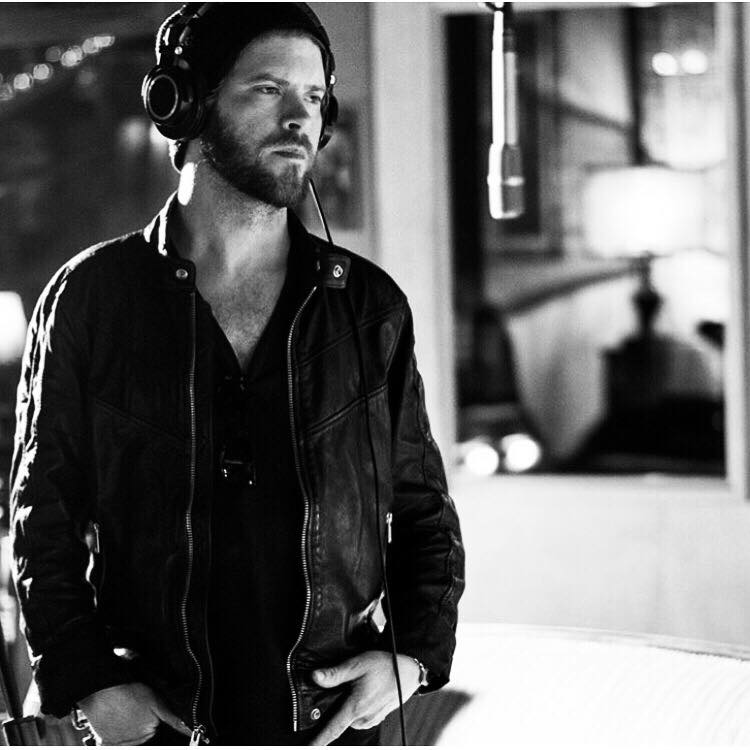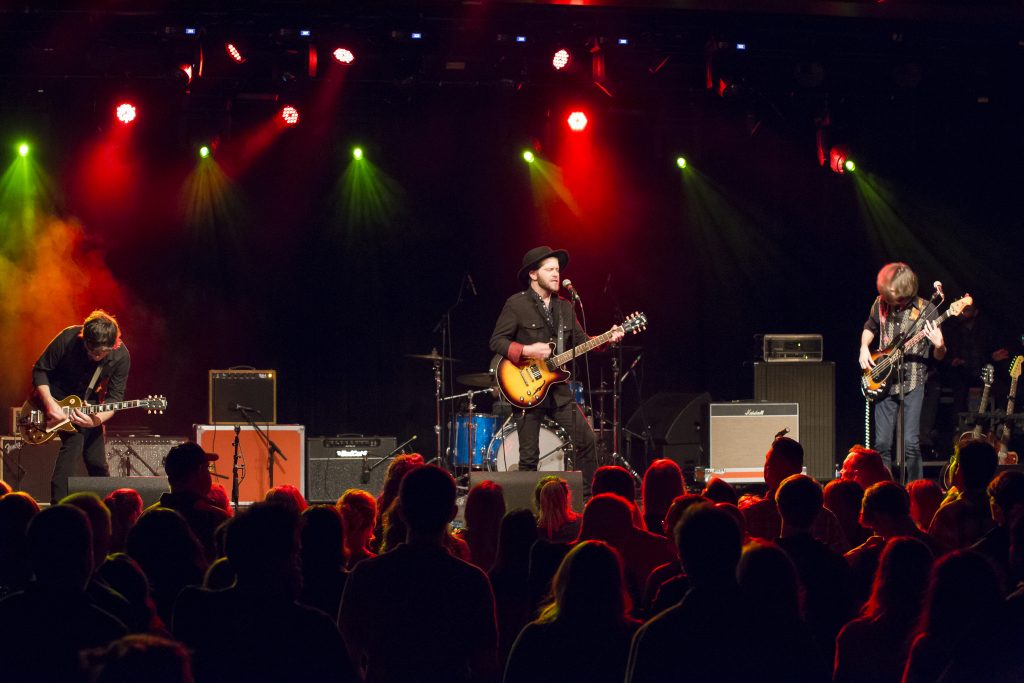Matthew Mayfield: Gun Shy
Matthew Mayfield has been a staple of the Birmingham music scene for well over a decade, both as the frontman for the now defunct-Moses Mayfield and as a current solo artist. His music has shown up in television shows like Grey’s Anatomy, and he has been putting out a steady stream of full-length albums and EPs since 2008.
We spoke with Matthew Mayfield about his newest album, Gun Shy, and discussed his longtime working relationship with producer Paul Moak, retooling past work and the importance of knowing you are not alone.
Magic City Bands: It’s been a few years since the release of Recoil. How did this new album get started?
Matthew Mayfield: I didn’t ever set out to make a full record in the beginning. I just had this hodge-podge of songs. There was so much variety that it didn’t feel cohesive. But then I came to this peace where I realized that in today’s world with everyone picking and choosing what they like from every record, I didn’t feel it was important to be cohesive. I felt like I could do whatever I wanted to.
The producer Paul Moak, who I made the record with, felt like what I was doing was totally fine. He said that we could treat each song like it was its own album and we could approach it from different angles. There’re rockers and there’s ballad, there’s stuff we cut live, and there’s stuff we put a bunch of overdubs on. There’s a little bit of everything for everyone in there. That was the way it came about with this variety of songs hitting me.
MCB: You’ve worked with Paul on several of your full-length records. What do you think working with him has brought out of you as a songwriter and musician?
MM: We’re definitely like brothers. We’ve done 66 songs together; we tallied it up. I’m the number one recorded artist at The Smoakstack in Nashville. I can’t shake him. He’s just that good. We can read each like the back of each other’s hands. It’s a good relationship.
He’s such a great writer, a brilliant producer and a great guitar player. He plays everything except drums. He did all the keys and B3 organ. He plays the accordion on “Broken Clocks.” A lot of the instrumentation on the record is him. I was doing vocals and guitar, but when it came down to it, there were a lot of times where there’d be a part I wanted on the record, but I couldn’t execute it well, and Paul would just grab the instrument and play it.
But we’re thick as thieves and I’m lucky to be able to record with him as well as Ethan Luck who played drums, and Clint Wells who played some guitar. We just put this record together a piece at a time.
MCB: Hearing you talk about the record come together piece by piece, the cover art image makes a lot of sense. Where did the idea for the cover come from?
MM: I came up with it as a way to do something different in terms of art. I contacted Kevin Booth, who is a great local artist and good friend of mine, and asked him to do it. He said he could do it, but admitted he wasn’t great with computers. But I told him that we could find someone to run the computer stuff. I just wanted him to do it as this pure piece of art. So he took a photo of me and all you see on that final image is charcoal and watercolor. He did all of that completely based off a photograph. I knew it was going to be good, but I had no idea it was going to be that good.
MCB: Where did the title Gun Shy come from?
MM: I was apprehensive at first, which is kind of ironic, about using the term because of the word “gun,” and these days it’s a curse word of sorts. But if you look up “gun shy” in the dictionary, it’s just a term to describe being apprehensive and being nervous about pulling the trigger, metaphorically speaking. That’s how I was feeling making this record. I wasn’t sure about anything. Normally, when I go in, I know exactly what I wanted to do and exactly who I needed to play. But this time, I just went in blindly, threw a bunch of things at the wall and decided what we liked. I felt like that was the right way to go.
When the title track came about and it came down to sequencing the record, I put it at the top at the list. Everyone kept asking me if I really was going to put that song first, and I told them hell yeah, I am. It’s good to come out of the gate with something that’s a little different. It’s got a little bit of me as a solo artist and it’s got a little bit of The Blue Cut Robbery, which is my side thing. I’m a rock ‘n’ roll guy at heart, so I knew that was the way to lead off. And I felt that was the right way to title the record.
MCB: You mentioned that you weren’t sure how these songs fit together, but if you look at the titles, it works. You’ve got the title track, “S.H.a.M.E.,” “Keep My Distance,” which all have that vibe of being apprehensive.
MM: When I started listening to the record when I first got the finished product, it did start to make more sense, especially in sequence. It seems like everyone has a different favorite song, which is great. That’s always a good sign. I’ve gotten warmer reception to this album than any one to date. Even more than Banquet for Ghosts, which was the fan favorite for a long time. But it’s crazy. No one has said anything negative and I haven’t had any trolls yet, at least as far as I know. It’s a really freeing feeling. We had finished the record. It was mixed and mastered and ready to go last June, but I had some issues with my management and we had to work those out along with a few other kinks. I was full-term pregnant with that record for nine months when it came out. It also came out on my dad’s birthday, so that was a good luck charm.
MCB: Speaking of Banquet for Ghosts, I noticed you did a bit of a callback in the lyrics for “Table for One” (“I’m tired of hosting banquets for ghosts”).
MM: I was hoping people would pick that up. It’s one of my favorites on the new record. We cut it all live, just me and Paul and Ethan in a room. Paul was on piano, Ethan was on pedal steel, and I was on guitar and vocals. We just picked a path, played it once or twice, picked the takes we liked the best and the rest is history.
In terms of reference, there are actually a few on the record. I have a song called “Dead to You” from my first EP that also has a lyric that appears in “Table for One” (“Someone’s always dying, but no one wants to look”). And then the last line (“stare down the barrel of that old gun”) is a reference to a song of mine called “Fact or Fable”. It was a reflective period of writing. I actually wrote the majority of that song in the studio. I normally come in knowing exactly I want to say, but I got to the studio early one day and I wrote the song there and we tracked it that day. It was really cool to explore in a way that I haven’t done before.
MCB: As a musician, you want that creativity to flow, but I’m sure you are apprehensive about making sure everything gets done right. So when you have those moments of spontaneity, I’m sure that definitely feels like a win.
MM: It was very important for me to make it feel authentic. A lot of times, you’ll have a melody and have some lyrics that are decent, but you know you can do better. I think that’s where I was with that song, but I knew it was going to be special if I didn’t force it. Thankfully, the song kind of gave itself to me the day we cut it.
MCB: Looking at the other songs, do the letters in the title of “S.H.a.M.E.” stand for something?
MM: Yes, they’re initials of names. That’s probably my favorite song on the record, but also the hardest one to sing. It’s a painful song that was written in a painful time of feeling alone and sort of abandoned, which is a very similar theme to “Blackball.” I think a lot of times, that subject is taboo. Everyone’s ashamed of something, they just don’t always want to talk about it. I figured why not write a song that everyone can relate to. It could be shame about anything whether that’s sex or food or booze. Those little places where we hide our imperfections and the things that we’re scared to share with other people, I think that brings us together if we’re open and honest. To me, that vulnerability gives a voice to people that don’t know what to do with what they’re dealing with. The whole point of the song was to let people know they’re not alone. To me, that’s the payoff for that song.
There’s a video coming out for that song as well. It’s the best video I’ve ever done, and it looks like a feature film. We shot it here in Birmingham on 16mm film. There’s no digital component, so I just had to trust the guy behind the camera. It was Sean Kirby who was brilliant, and the director was Greyson Welch We spent a lot of time filming that video. We shot some of it in the actual cell where Martin Luther King, Jr. was held in 1963. We did a lot of hard work for it, and I think it paid off. We’re just waiting on a premiere date right now.
MCB: The fact that part of your intent with the song is to let people know they’re not alone is a powerful message, especially these days with so many suicides happening in the public and private spheres.
MM: It’s really important because without music, I don’t think I’d be here. There were times when I was a kid that music saved my life. And even still, there’s plenty of records that keep coming out that lift me up or make me feel like I’m not alone. I was able to get that stuff out of my system, but also give a voice to the other people that feel voiceless. The name of the song being an acronym is a personal thing for me, but at the same time, I think the worst thing you can do when someone is open and vulnerable and broken in front of you is to shame them. I think that’s the most destructive thing you can ever do and is a huge reason why people kill themselves. They’re not “right” or “good enough” in the minds of those around them, and shaming people is such a bad tactics. I think treating people with love in those hard times, that’s the way to go.
MCB: You have “Fall Behind” on this album, which was on the Moses Mayfield record in 2007. How has your perspective on that song changed since you wrote it?
MM: It’s funny because that Moses Mayfield record came out on Columbia Records, but it never really got a shot. I spent my whole life writing that record and we got signed when I was 21 and the record came out when I was 23. We worked so hard on it, but due to label politics, a bunch of people got fired. It was essentially our cheerleaders that got fired, so we got dropped and the band dissolved. But I never thought the song got a proper shot. I wrote it when I was a kid, like 22 years old. I’m not that anymore. It’s been over a decade. But when I played it for Paul, he asked what it was. I told him it was a Moses song and I wanted to do a version 2.0. It was the same with “Keep My Distance”. We had a roadmap with those tunes, but we went off a little to make them sound like me now with the way we approached the song and the way we put the instrumentation together. We didn’t change too much in terms of arrangement, but sonically we went for a more different vibe, which was lot of fun and a huge challenge because you’re always trying to beat what you’ve done in the past.
MCB: One thing you did differently this time around was put out an in-depth podcast episode (20-30 minutes) for each song on the record. Where did you get the idea to try this out?
MM: The podcast is called Inside the Song with Matthew Mayfield and it’s out on Spotify and Apple Podcasts. It was my friend Michael Abrams’s idea; I can’t take credit. He suggested rolling the record out via podcast, where we would play a little of each song upfront, talk about it and then at the end, we’d play the whole song. But I thought it was such a cool idea, and he was such a great host. We’re going to keep it going with other artists. We’ve got a bunch of ideas, so everyone should stay tuned for that.
It was liberating to be asked questions not only by a close friend, but someone who loves music as much as I do. We could dig into the lyrical content as well as the sonics and sounds for the nerds like me that care about guitars and amps and pedals. It was really cathartic to talk about the material in a really intimate setting. We did those podcasts in my living room. Just pour a drink and chat for an hour or two.
MCB: Speaking of music nerds, what were some of the main guitars and equipment you used this time around?
MM: It was all over the place. I think Paul has 64 vintage guitars, probably half and half acoustic and electric. The all-stars were a cheap Fender called a Coronado that costs about $600 new and wasn’t a reissue or anything. That made it on the record a ton. Ethan actually sold it to Paul, and I fell in love with it pretty instantly. We also used a handful of Gibson J-45s for acoustics and a Martin D-35 from the 70s.
In terms of amps, there was lot of variety, but the most interesting thing about the record is that this was the first time I played a Fender Stratocaster. In my entire career, I’ve picked them up at music stores, but they’ve never really “sung” for me. But when we went in to do “Blackballed”, which is where the Strat shines, we dialed into that classic Fender guitar and amp sound. It was an old Princeton amp, a ’65 reissue. We dialed it in and it was perfect. It’s the longest on the record, and we let the tail of the guitar solo just hang for a bit to help get that guitar player side of me. That’s where I come from. I’m a guitar player first and foremost, then a songwriter underneath and then singer underneath that.
It was a lot of fun. Paul has so much gear, and it’s overwhelming, but it’s always queued up to where everything available. With most studios, you have to find the guy to mic everything up and then you have to dial in the sound forever, and before you know it, you’ve lost your idea. But everything at Paul’s place is so accessible; everything is all ready to go. It’ll take ten minutes to find a sound and then you lock it in and record. It’s like being a kid in a candy store.
MCB: What are five records you can listen to from start to finish at any point?
MM:
In Utero by Nirvana
Recovering the Satellites by Counting Crows
Damn the Torpedoes by Tom Petty as well as Wildflowers
OK Computer by Radiohead
Matthew Mayfield’s latest album, Gun Shy, is out now via streaming services and on CD and vinyl. To purchase the album and to stay up to date on his latest tour dates, visit matthewmayfield.com.
Chris K. Davidson is a member of the band Waterwells.



